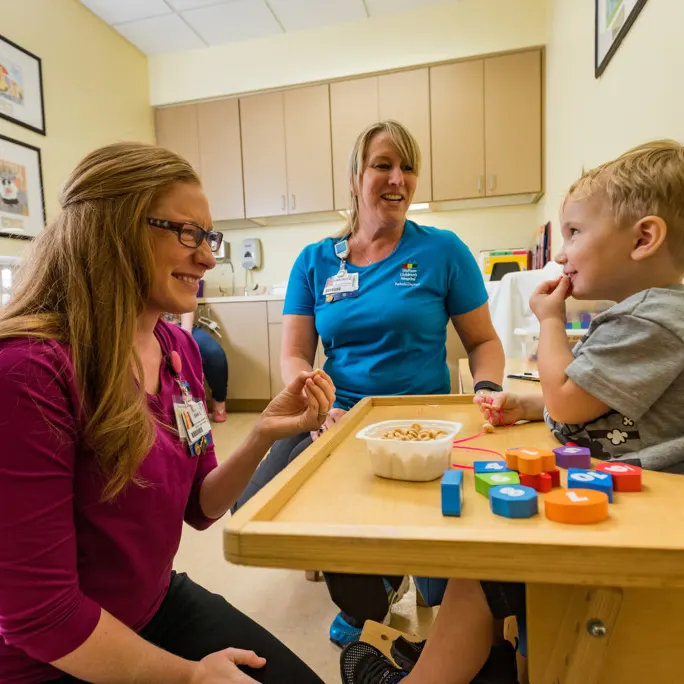Exactly How a Speech Pathologist Can Aid Improve Communication Abilities
Effective communication is a cornerstone of specialist and individual success, yet many individuals encounter challenges that impede their capability to express themselves clearly. A speech pathologist is outfitted to address these obstacles through targeted assessment and intervention techniques customized per individual's requirements. By using evidence-based therapeutic techniques, they not just work to boost speech and language disorders yet additionally boost overall communicative capability. Understanding the complex role of a speech pathologist exposes exactly how their competence can transform lives, welcoming a closer exam of the particular methods and results related to their method.
Understanding Communication Disorders
Recognizing interaction conditions is essential for acknowledging exactly how they impact individuals' capability to reveal themselves and engage with others. Communication problems encompass a vast array of difficulties that impact speech, language, and social interaction, commonly impeding effective interaction. These conditions can occur from numerous aspects, including neurological conditions, developing hold-ups, physical disabilities, or psychological concerns.
Speech conditions might materialize as troubles in voice, fluency, or articulation manufacturing, affecting just how words are noticable or spoken. Language conditions, on the other hand, include challenges in understanding or making use of language, which can restrain both verbal and non-verbal interaction. Social communication problems are identified by difficulties in the pragmatic aspects of interaction, such as taking turns in conversation or understanding social signs.
The repercussions of interaction problems are profound, influencing not only the person's capacity to convey feelings and ideas yet additionally their social partnerships, instructional chances, and overall lifestyle. Recognition of these disorders can promote empathy and assistance, urging effective methods for interaction and engagement. Understanding the complexities of communication problems is an essential action towards advertising inclusivity and addressing the requirements of those impacted.
Role of a Speech Pathologist
Speech pathologists regularly play a crucial duty in diagnosing and treating communication problems, using an array of evidence-based methods customized per person's needs. These specialists deal with people across the life expectancy, from youngsters with speech hold-ups to grownups recouping from strokes or distressing mind injuries. Their proficiency incorporates a variety of interaction problems, consisting of expression, language, voice, and fluency conditions.
In restorative settings, speech pathologists make use of organized treatments made to boost interaction abilities. They may carry out strategies such as speech workouts, language games, and social communication training to help with enhancements in receptive and meaningful language capabilities. Speech Pathologist. Additionally, they inform customers and their families about reliable communication strategies and adaptive techniques to navigate day-to-day communications
Beyond straight treatment, speech pathologists team up with various other healthcare caregivers, instructors, and professionals to make certain a thorough method to therapy. They support for clients by providing resources and assistance, making it possible for people to achieve their interaction objectives and improve their overall lifestyle. As professionals in the area, speech pathologists are essential in cultivating effective interaction, promoting independence, and improving social participation for those with interaction obstacles.
Evaluation and Diagnosis Process
The evaluation and medical diagnosis process conducted by speech pathologists typically involves an extensive evaluation to determine interaction disorders precisely. This process begins with a detailed instance history, where the clinician collects significant information concerning the person's clinical, educational, and developmental history. Understanding the context of the individual's communication troubles is crucial for a precise medical diagnosis.
Adhering to the situation history, speech pathologists use standardized tests and casual assessments to review various facets of communication, consisting of speech noise production, language comprehension, Source expressive language, and social communication abilities. These analyses are tailored to the person's age and particular concerns, giving important information for analysis.
Monitoring is additionally an important part of the evaluation process, as it permits the clinician to see direct how the private connects in natural setups. In addition, meetings with household participants and educators can offer understanding into the individual's interaction challenges across different environments.
Once the analysis is full, the speech pathologist manufactures the findings to establish a medical diagnosis and advise appropriate interventions. This complete evaluation process ensures that individuals receive targeted assistance tailored to their distinct interaction requirements, laying the structure for reliable restorative approaches.
Therapeutic Techniques and Approaches
Many restorative techniques and methods are employed by speech pathologists to deal with a variety of communication problems efficiently. One commonly made use of technique is expression therapy, which concentrates on dealing with speech sounds through rep and visual signs. This technique is specifically beneficial for individuals with speech sound conditions.
An additional efficient approach is language treatment, which enhances both receptive and expressive language skills. This might involve interactive activities that advertise vocabulary growth, syntax understanding, and conversational skills. In addition, speech pathologists often make use of social abilities you can look here training to enhance pragmatic language capacities, enabling people to browse social interactions a lot more effectively.
Fluency shaping and stuttering modification methods are specifically developed to help those experiencing fluency conditions. These approaches help customers create smoother speech patterns and take care of the physical and psychological parts of stuttering.
Moreover, augmentative and different interaction (AAC) systems are employed for people with extreme communication disabilities. These systems, which can consist of gestures, icons, or digital gadgets, give crucial assistance for effective interaction.
Advantages of Speech Therapy

In addition, speech treatment can assist in developing essential listening and comprehension abilities, promoting better Web Site interaction in conversations. People with cognitive-communication conditions can also benefit, as therapy focuses on strengthening memory and analytical capacities, crucial for reliable interaction.
One more vital facet is the psychological assistance given throughout treatment sessions. Speech pathologists create a risk-free setting, motivating people to get over anxiousness and irritation related to their interaction problems. This support can cause boosted self-esteem and general psychological health.
Additionally, early treatment through speech treatment can stop additional complications, guaranteeing that people reach their full communicative possibility. Overall, the benefits of speech therapy extend beyond plain speech renovation, favorably impacting numerous dimensions of life for those influenced by interaction difficulties.
Conclusion
In summary, speech pathologists play a vital duty in dealing with interaction disorders via evaluation, diagnosis, and tailored therapeutic interventions. By using evidence-based strategies, these specialists enhance people' speech and language abilities, fostering boosted quality, fluency, and social communication skills. The benefits of very early treatment emphasize the value of seeking support from speech pathologists, as their proficiency can significantly boost communicative capacity, eventually bring about better success in both specialist and personal rounds.

Speech pathologists often play a crucial duty in diagnosing and treating interaction conditions, using a range of evidence-based strategies customized to each individual's needs. As experts in the field, speech pathologists are important in promoting efficient interaction, promoting self-reliance, and boosting social engagement for those with interaction difficulties.
